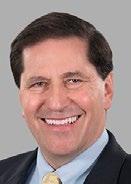






















































Lawyers Mutual goes beyond simply being a malpractice insurance company. We are here for you – our insureds – to make the practice of law in North Carolina better.
In response to changes in the legal profession, Lawyers Mutual now offers a Practice Management program to assist insureds with issues of technology and practice management, spanning from start up to wind down and all points in between.

By focusing on technology and a systems-based approach to practice management, our goal is to help insureds operate more efficiently and with less risk.
We are more than an insurance company; we are your partner in law.
“I wanted to thank you for your help. I have gone through a couple of concerning situations and your assistance was exactly what I needed to successfully navigate every issue I had.”
IN PRINT. IN DIGITAL. IN PERSON. Expertly Focused On Today’s Legal Professional.
130 North McDowell Street, Unit B, Charlotte, NC 28204 (704) 377-6221 • FAX(704) 377-4258
E-mail: service@bridgetowermedia.com • Circulation: 1-877-615-9536
Managing Director/Publisher
Susan A. Bocamazo, Esq., sbocamazo@lawyersweekly.com
n EDITORIAL Editors
Henriette Campagne hcampagne@lawyersweekly.com
Kelly Caplan kcaplan@valawyersmedia.com
Jordan Yount jyount@molawyersmedia.com
Digital Media Manager
Scott Baughman sbaughman@mecktimes.com
n CIRCULATION
Audience Development Manager Disa Ehrler
dehrler@bridgetowermedia.com
Circulation
1-877-615-9536 service@bridgetowermedia.com
002-904] is published Monthly with General Statewide Circulation for $410.36 per year by North Carolina Lawyers Weekly, 130 North McDowell Street, Unit B, Charlotte, NC 28204
Periodicals postage paid at Charlotte, North Carolina 28228-9998.
POSTMASTER - Electronic Service Requested. Send address changes
COVER STORY: EMPLOYMENT BAR CASTS WARY EYE ON AI
p4 | EEOC sounds alarm on hiring/firing by algorithm
COURTS
p11 | Company liable for tainted eyewash
OPINIONS
n ADVERTISING
Advertising Account Executive
Sheila Batie-Jones sbatie-jones@nclawyersweekly.com
n ACCOUNTING & ADMINISTRATIVE
Business Manager
Kelly Olson kolson@bridgetowermedia.com
n ART & PRODUCTION
Creative Director
Melanie Bingham
Project Management
Jordan Mazuranic
Production Specialist
John Reno
Director of Production Services
Bradley Redmond
to: North Carolina Lawyers Weekly, Subscription Services, P.O. Box 1051, Williamsport, PA, 17703-9940
To place orders, temporarily stop service, change your address or inquire about billing: Phone: (877) 615-9536
Email: service@bridgetowermedia.com
To submit subscription payments, mail: Subscription Services P.O. Box 1051 Williamsport PA 17703-9940
©2023 BridgeTower Media. Material published in North Carolina Lawyers Weekly is compiled at substantial expense and is for the sole and exclusive use of purchasers and subscribers. The material may not be republished, resold, recorded, or used in any manner, in whole or in part, without the publisher’s explicit consent. Any infringement will be subject to legal redress.
BridgeTower OpCo, LLC d/b/a North Carolina Lawyers Weekly Media is an equal opportunity employer.
p15 | A round-up of North Carolina court decisions
VERDICTS & SETTLEMENTS
p22 | The latest results on North Carolina legal action
LAWYERS IN THE NEWS
p26 | New associations, promotions, b ar discipline
COMMENTARY
p28 | Four misconceptions about appeals
POWER LIST
p29 | Business Defense
Welcome to the April issue of North Carolina Lawyers Weekly. In the pages that follow you’ll see how we’re continuing to improve our new magazine format, with increased coverage of court decisions, verdicts and settlements, and legal news of importance to North Carolina attorneys. This month we are featuring a cover story that explores the concerns the Equal Employment Opportunity Commission and local employers are raising about potential workplace discrimination resulting from the increased use of artificial intelligence, analysis of two recent 4th U.S. Circuit Court of Appeals decisions, and a profile of the current North Carolina Advocates for Justice president, along with coverage of verdicts and settlements and the top opinions of the month.
I also encourage you to check out the enhanced coverage we’ve rolled out in our daily alerts and on our website in the past few weeks. You’ll find news posted on nclawyersweekly. com each day and featured in your daily alert, along with opinion summaries that are posted as we receive them.
Please continue to reach out with feedback on the changes you are seeing: We value your opinion and constantly strive to provide the content you rely on to grow your practices and keep abreast of legal developments in North Carolina.
Sincerely,
Susan A. Bocamazo, Esq. Publisher, North Carolina Lawyers Weekly
Publisher, North Carolina Lawyers Weekly

As employers increasingly use automated systems to make decisions regarding hiring, firing, promotions and pay, the U.S. Equal Employment Opportunity Commission is raising the red flag on the risks of disability, race, gender and age discrimination posed by reliance on artificial intelligence technology in managing the workplace.

On Jan. 31, the EEOC held a public hearing in Washington titled “Navigating Employment Discrimination in AI and Automated Systems: A New Civil Rights Frontier.”





“The goals of this hearing were to both educate a broader audience about the civil rights implications of the use of these technologies and to identify next steps that the commission can take to prevent and eliminate unlawful bias in employers’ use of these automated technologies,” EEOC Chair Charlotte A. Burrows said in a statement.
“We will continue to educate employers,


workers and other stakeholders on the potential for unlawful bias so that these systems do not become hightech pathways to discrimination.”
Joshua Van Kampen, a Charlotte employment attorney who practices in North and South Carolina, shares those concerns.


“I’m really worried about it,” Van Kampen says. “As a society, we haven’t solved the discrimination puzzle about how to root out implicit or explicit bias from hiring decisions or personnel decisions. The notion that we’re going to turn over these hiring decisions to artificial intelligence just seems like a recipe for problems.”

While AI technology in theory could be a helpful tool in minimizing bias, the reality has proven to be far more complex, according to Sean Herrmann of Charlotte’s Herrmann & Murphy.
“If there is AI that can take some of that human subjectiveness out [of the hiring process], in theory that would have a big impact on discrimination law,” Herrmann says. “If the goal is less discrimination, there are ways that I would think companies could use [AI] to eliminate some of these biases that people have. [But] I don’t know how you ever take the human element completely out of it. To the extent that there’s this push for ‘if there’s no human discriminating, then it can’t be discrimination’ — I’m extremely suspicious of that.”
And while many companies are claiming the goal of utilizing AI is to remove human bias from employment decision-making, Van Kampen isn’t buying those claims.
“The intent of these artificial intelligence hiring programs is not to root out discrimination; it is to save employers money, by trimming down their talent and acquisition personnel,” Van Kampen says. “It’s money driven. It’s not driven with any sort of societal purpose to help root out discrimination.”
While the technology may be new, David I. Brody, president of an employment lawyers’ association in Massachusetts, sees a plaintiff’s success in a case involving AI-based decision-making as coming down to the familiar challenge of uncovering sufficient evidence of discriminatory animus.
“From the reading I’ve done, what actually makes AI different is that it is eerily capable of being just as terrible as humans,” Brody says. “So if AI is truly attempting to mimic the human approach, then bias will be reflected in AI’s conduct as well. And there will be circumstantial evidence to show it.”
The public hearing conducted by the EEOC was part of the agency’s AI and Algorithmic Fairness Initiative. Launched in October 2021, the initiative is aimed at ensuring that the use of AI and other emerging technologies in making employment decisions comply with federal civil rights laws.
Last May, the EEOC reached a major milestone in the program by issuing a technical assistance document addressing how the Americans with Disabilities Act applies to an employer’s use of AI in its workforce decision-making.
Julian H. Wright Jr. of Robinson, Bradshaw & Hinson in North and South Carolina says concerns have been flagged regarding disability and reasonable accommodations with respect to AI calculations.
“Very few if any of these programs or third-party vendors offering these services are geared toward making reasonable accommodations,” Wright observes. “If there’s no way to measure whether or not a person can do a job with a reasonable accommodation, then if a person does in fact need a reasonable accommodation, they’re not going to be one of the top five people
generated by the program or the AI application.”
In its guidance, the EEOC adopts the definition for AI used in the National Artificial Intelligence Act of 2020. Under § 5002(3) of the act, Congress defined AI to mean a “machine-based system that can, for a given set of human-defined objectives, make predictions, recommendations or decisions influencing real or virtual environments.”
In the employment context, AI typically relies, at least in part, “on the computer’s own analysis of data” to determine which criteria to use when making employment decisions, the EEOC guidance explains.
“AI may include machine learning, computer vision, natural language processing and understanding, intelligent decision support systems, and autonomous systems,” the technical document states.
The EEOC’s guidance defines “algorithm” as a set of instructions followed by a computer to accomplish some end.
“Human resources software and applications use algorithms to allow employers to process data to evaluate, rate, and make other decisions about job applicants and employ-
See Page 6
“As a society, we haven’t solved the discrimination puzzle about how to root out implicit or explicit bias from hiring decisions or personnel decisions. The notion that we’re going to turn over these hiring decisions to artificial intelligence just seems like a recipe for problems.”
Joshua Van Kampen, Charlotte
ees,” the document states.
The EEOC guidance identifies the three most common ways in which an employer’s use of algorithmic decision-making tools “could” violate the ADA.
First, an ADA violation may occur when the employer fails to provide a reasonable accommodation necessary for a “job applicant or employee to be rated fairly and accurately by the algorithm.”
Second, an employer may violate the ADA by relying on algorithmic decision-making tools that “intentionally or unintentionally” screen out an individual with a disability, even though that individual is able to do the job with a reasonable accommodation.
Third, the EEOC’s technical guidance states that the employer’s algorithmic decision-making tool may run afoul of the ADA’s restrictions on disability-related inquiries and medical examinations.
Van Kampen sees the use of AI in employment decisions as posing a tangible risk of misuse on the part of employers that could result in discriminatory results.
“Who created the artificial intelligence? Who created the algorithm? A person did,” Van Kampen says. “Let’s say that an employer is trying to target an algorithm and has added certain data points that they think are pertinent for a candidate. That completely ignores the notion that the criteria that they’re searching for could have a disproportionate impact on people in particular minority groups.”
Van Kampen identifies a number of ways that bias can taint an automated system should the employer fail to take the necessary precautions.
For instance, he points to AI algorithms that rely on metrics that include prioritizing candidates
who attended four-year universities.
“A lot of people that come from challenged socio-economic backgrounds may have a community college degree — an associate’s degree — before a bachelor’s degree,” Van Kampen says. “Not because they’re not smart, [but] because they couldn’t afford a four-year college institution. If the folks that tend to go to community college before going to a four-year [school] are disproportionately African American or Latino, for example, and that is a data point in your selection algorithm, then you’re going to have a potential disproportionate negative impact on people that fall in those groups.”
Brody, meanwhile, analogizes potential litigation over AI to prior litigation over civil service examinations.
“[Government employers] tried to make it a performance-based examination that was facially neutral, and [the tests] ended up being held [as] discriminatory in a number of different ways,” Brody says. “I appreciate that AI is a new twist on an old problem, but just
because there is some metrics-based tool in place doesn’t mean that suddenly [employers] are insulating themselves from bias.”
Wright believes it’s critical that employers be vigilant about what data is being fed into an algorithm.
“You’ve simply got to be careful about what your artificial intelligence is going to be learning from,” the North and South Carolina attorney says. “If that pool of information is defect or lacking in some way, then you’re going to get results kicked out that are lacking.”

Though Van Kampen has not yet been called on to offer counsel in a case involving AI discrimination, he attributes the lack of legal inquiries to another issue.
“I think we [are] dealing with a clientele who are largely ignorant about the use of AI in the hiring process,” he says. “Right now, there are no federal laws requiring employers to disclose its use. So people that are subjected to artificial intelligence algorithms and hiring facial recognition are very likely unaware of its use — and therefore ignorant as to its impact.”
Herrmann has similar concerns.
“I can see that it adds to this fiction that people are just cogs in the machine,” Herrmann says. “They’re not; they’re people.”
“We will continue to educate employers, workers and other stakeholders on the potential for unlawful bias so that these systems do not become high-tech pathways to discrimination.”
EEOC Chair Charlotte A. BurrowsBurrows












After experiencing discrimination at her local library, 14-year-old Valerie Johnson wandered across the street into the Vance County Courthouse.
She sat in shock as she watched the same inequality repeated.
“I saw a case going on that I thought was ridiculous,” Johnson says. “That couldn’t be justice. A man was being tried for stealing one can of food from the local supermarket. I thought, ‘How can this be? Obviously, he’s hungry. How is he being prosecuted for this?’”
The case sparked an interest in law that has never faded.
Johnson was raised in Henderson, North Carolina, by two educators who instilled in her the value of giving back to her community.
She graduated from the University of North Carolina with a B.A. in education in 1987 and began teaching second- and third-grade students, but the pull toward the law remained. After teaching for four years, she was admitted to University of North Carolina School of Law, graduating with honors in 1994.
“Second and third graders aren’t much different than adults, really,” Johnson says. “The tremendous amount of work that teachers do in order to educate children is really analogous to the tremendous amount of work that lawyers — particularly trial lawyers — do in order to educate their clients and jurors and judges.”
Johnson began handling workers’ comp, employment discrimination and civil rights matters at Patterson Harkavy, where she remained for 17 years. In 2011, she started the personal injury and workers’ compensation firm Johnson & Groninger with her partner, Ann E. Groninger.
Throughout her time practicing law, Johnson has continued pursuing her career in education, teaching trial advocacy at UNC School of Law and formerly teaching workers’ compensation law at Wake Forest University School of Law.
“I don’t know why else I would practice law or teach law students, if it weren’t for the fact that I feel that I could make some little difference in people’s lives,” she says.
Johnson is now president of the North Carolina Advocates for Justice, where she works to cultivate a sense of community among legal professionals.
Prior to becoming president of NCAJ, she chaired the Legal Specialization Committee for Workers’ Compensation Specialists, and held a position on the North Carolina Bar Association’s Workers’ Compensation Committee.
Johnson is also a member of the North Carolina Association of Black Lawyers, the Durham Association of Women Attorneys, and the North Carolina Association of Women Attorneys. She has been a board member at Lawyers Mutual since 2015.
“The work that NCAJ does to have a community of lawyers who can help each other, even beyond a formal education, is simply amazing,” Johnson says. “Throughout all the challenges of a pandemic and all of the challenges in the legal field, to make sure that attorneys have each other to lean on is an incredible feat.”
While Johnson has received much support throughout her career, she can attest firsthand to the ways in which the minimal minority representation in the profession is damaging to students.
She says that when she started law school, there was only one African American professor at UNC School of Law, Professor Charles Daye. By the time she graduated, a second African American professor, Marilyn Yarbrough, had joined the faculty.
“There has always been a representation deficit,” Johnson says. “It was not lost on any of us that it was important that we were there and doing our best to make our way through a field that is certainly underrepresented. Law school is challenging enough when you have people who are in tune with your needs. If you don’t have those people, it’s that much more difficult.”
Johnson attributes much of her successful career to those who have helped her along the way, including family members and mentors in the legal community.
“The older I get, the more appreciative I am of the work many people did to make sure that I could have a career in the law,” she says. “Jack Bulger, former dean of UNC Law, and many others there have been so instrumental in making sure that I understood what a difference one person can make when they represent individuals and help them at sometimes the worst period in their lives.”
The success of Johnson’s mission to help others navigate challenging aspects of their lives can be seen in the gratitude she receives from her clients.
Twenty-eight years ago, she started keeping a small “thank you” folder of cards and letters from clients. The fact that the drawer now houses multiple bulging files of thank-you notes shows that she has succeeded in her goal.
Adrienne Blocker is the managing trial attorney at DeMayo Law Offices in Charlotte. Actively involved in the legal community, Blocker is secretary of the board for the North Carolina Mock Trial Program, and previously served as vice president of education and chair of the auto torts section for North Carolina Advocates for Justice.
Blocker has turned her passion for helping others into a successful legal career representing plaintiffs in personal injury cases.
She received her undergraduate degree from Minot State University and her law degree from Campbell University School of Law. With more than 20 years of experience, Blocker practiced at Crumley Roberts; Robertson, Medlin & Blocker; The Law Offices of John M. McCabe; and the Law Offices of Adrienne Blocker before landing at DeMayo Law.

She recently spoke to North Carolina Lawyers Weekly about mentorship, her involvement with the North Carolina Mock Trial Program, the work of North Carolina Advocates for Justice and her firm’s scholarship program.
Q. What area of law are you most passionate about and why?
A. I have found my passion in law doing exactly the work I am doing: personal injury trial work.
It was not what I expected to do in law school, but after a summer internship at a personal injury firm, I found that the practice area connected with my innate desire to help others. The trial side of the practice means that I am always actively fighting on behalf of my clients and strategizing to get them the best results. The hugs and thanks I get at the end of a case make this work special and fulfilling, both professionally and personally.
Q. What drew you to get involved with the North Carolina Mock Trial Program? Why is it important for high school students to have access to programs like this?
A. I first got involved in the North Carolina High School Mock Trial Program about 20 years ago when a call went out to the local bar asking for attorney volunteers to help judge the regional competition. After returning for a few years, I was recruited to help the local regional coordinator manage the competition and served on the board of directors, where I remain secretary. We just managed the state finals competition on March 17 and 18, and the winning team will compete in the national competition in May. High school students in the mock trial program gain a critical civic
understanding of our justice system and that trial by jury is crucial to preserving our rights as citizens. These students gain self-confidence and develop analytical reasoning and communication skills vital to their future success.
Q. As someone who gives back to the community through mentorship, who are some of the most influential mentors you’ve had, and what did they teach you?
A. As trite as it may seem, one of my mentors was my mother. She taught me and my sisters that we could do and become anything we wanted, to be self-sufficient, and to perform tzedakah. In the Jewish faith, tzedakah is an obligation to do what is right and just as part of living a spiritual life. In our house, tzedakah is more than financial charity; it is building trusting relationships and giving your time and insight. While my mother was my life mentor, my first legal mentor and now friend was a defense attorney. I had been practicing only briefly when I had my first trial, and everything was stacked against me. As expected, I lost that trial. My firm-assigned mentor asked the defense attorney for feedback on how I did and passed that on to me. As serendipity
would have it, that same defense attorney was on the other side of my second trial. After that trial, I just asked him for direct feedback on how I had improved and where I still needed to improve. Since then, we have been on opposite sides and sometimes worked together as co-counsels on cases. I have no doubt that I am a better trial attorney for this mentorship and friendship.
Q. You were previously the vice president of education and chair of the auto torts section for North Carolina Advocates for Justice. What is the importance of the organization, and what prompted your involvement with it?
A. I first became involved in the North Carolina Advocates for
• Civil Litigation Attny – Winston Salem : Seeking 3 to 5 yr Associate level Candidate with Civil Litigation experience interested in joining a small but busy well established firm offering full benefits and great location ! If you like the large firm case load with the small firm atmosphere and the ability to work independently on a variety of cases this could be for you ! Ideal candidate will have experience drafting complaints and preparing Witness outlines and be NC bar licensed.
• Medical Malpractice Attny – Greensboro : Well established North Carolina Firm seeks Associate with 3 + years experience to join their Medial Mal Defense Litigation department . Ideal candidate will have litigation experience-- specifically in the med mal arena . This firm offers an excellent benefit package and competitive salary range !
• Estate/Trust Attny – Greensboro: This growing firm is ready to add an Associate level Lawyer to their Estate practice ! Ideal Candidate will have 1 to 2 years exp working with Estate Planning and Administration and a desire to pursue a career in the Estate niche! Great location and established, growing incoming business and referrals, as well as competitive salary range and benefits!

Send Resume in Strict Confidence to :
Justice, then known as the North Carolina Association of Trial Lawyers, while I was in law school for networking and continuing education opportunities. Twentyfive years later, I am still a member for the same reasons, plus the advocacy that NCAJ does on behalf of our clients. I served as vice president of Education for a few years, as I felt it important to give back to the organization that had given me so much. As VP of Education, I helped ensure that we had quality, timely programs and pushed for equity, inclusion and diversity in the speakers at these programs. A common theme with me is education and learning. I currently serve as chair of the board of Continuing Legal Education for the North Carolina State Bar, which sets forth the standards for continuing education for all North Carolina licensed attorneys.
Q. Your firm has a college scholarship program that has given $2,500 to 20 high school seniors across 11 counties in North Carolina this year alone. What does DeMayo Law hope to accomplish through this program?
A. At DeMayo Law, we see the devastation of distracted and drunk driving on an almost daily basis. The Michael A. DeMayo Arrive Alive® Scholarship Program was established 21 years ago to help high school students understand the dangers of drinking and driving and to help curb that dangerous activity. The scholarship program has also expanded to focus on the dangers of distracted driving. The program has given more than $700,000 in scholarships to positively impact our communities and save lives in the process.
The 4th U.S. Circuit Court of Appeals has affirmed a products liability and warranty judgment obtained by a non-profit eye bank against two suppliers of eyewash that was later revealed to be contaminated, rendering any recovered tissue unusable.
Thae district court rejected the suppliers’ arguments — one said it was merely a “distributor” rather than a manufacturer, while the other claimed it was simply repeating the other’s warranty — and found them jointly and severally liable for more than $600,000.
Senior Circuit Judge Barbara Milano Keenan of the Fourth Circuit upheld the ruling, noting that the eyewash bottle and packaging listed only the supplier’s name and logo, and only it registered the product with the Food and Drug Administration.
“Although [one supplier] identified itself as a ‘distributor’ and not as a ‘manufacturer,’ a jury could not conclude on this record that purchasers of the eyewash reasonably would have known that [it] was not the eyewash manufacturer,” Senior Circuit Judge Barbara Milano Keenan wrote.
Keenan was joined by Judges Pamela A. Harris and A. Marvin Quattlebaum Jr. in KeraLink International Inc. v. Geri-Care Pharmaceuticals Corporation (VLW 023-2-045) .
KeraLink International is a non-profit corporation that operated a national network of “eye banks” in several states. Eye banks recover corneas and other eye tissue from recently deceased donors for future transplant.
While eye banks are prohibited from selling recovered tissue, they
may collect certain fees for reimbursement of costs related to the removal, processing and transportation of such tissue. To facilitate the process, KeraLink bought medical supplies and equipment from various third-party vendors, including “surgical packs” that contained “eyewash” used for irrigating eye tissue.
Of relevance to this case are custom-designed surgical packs KeraLink bought from Stradis Healthcare. KeraLink didn’t specify any particular brand of eyewash; Stradis bought eyewash from a third-party wholesaler who got it from Geri-Care Pharmaceuticals Corporation.
Geri-Care got their eyewash from another company — Kareway Products Inc. — and requested a product similar to “Bausch & Lomb Advanced Eye Care.” Geri-Care asked that its logo be placed on the bottles.
Kareway got eyewash from another company that originally made the product in Korea. Rather than test the eyewash for pathogens, Geri-Care relied on the supplier’s certification that each bottle was sterile.
Geri-Care registered the eyewash
with the Food and Drug Administration. The label showed Geri-Care’s logo, said the eyewash was “distributed by” Geri-Care and that it was a “Product of Korea.” No other company was identified on the eyewash bottles or on the FDA registration.
Stradis received individually sealed bottles at its facility. After checking that the plastic seal on each cap was secure, Stradis placed the bottles in the surgical packs with an insert listing the contents, including “sterile eye wash.” The insert also stated that Stradis manufactured and distributed the packs.
The Eye Bank Association of America notified KeraLink in 2017 that some Geri-Care eyewash was potentially contaminated and told them to pull it from their inventory.
When lab testing verified that contaminants were present, KeraLink identified certain lots of Stradis surgical packs with the potentially tainted eyewash. It was later reported that corneal transplant recipients had tested positive for the pathogens after using
See Page 12

KeraLink’s surgical packs.
KeraLink sued Stradis and GeriCare in the Federal District of Maryland seeking joint and several liability for strict products liability and breach of express and implied warranty. They calculated damages $606,415.19 based on their loss of service fees, unusable surgical packs and employee time wasted.
The district court granted summary judgment to KeraLink against both defendants for product liability and breach of implied warranty, while saying only Stradis was liable for breach of express warranty.
Both defendants relied on the “sealed container defense” an affirmative defense available to sellers of defective products under certain conditions. Neither succeeded. The court said Geri-Care “held itself out” as a
manufacturer, not a seller. Stradis, meanwhile, had provided an express warranty that the product was sterile.
The court also rejected arguments that the economic source rule barred recovery, and found both defendants liable for the damages asserted by KeraLink.
This appeal followed.
Neither defendant challenged that KeraLink failed to satisfy the elements of its strict products liability claim, but instead relied on the sealed container defense and the economic source rule to bar liability.
Keenan explained that Maryland’s sealed container defense shields sellers from defective product liability with a showing that they acquired the sealed products without knowledge of defects and that they neither manufactured nor modified the product.
“A party qualifies as a ‘manufacturer’ of a product and may not invoke
BJoel G. Bowden Law OfficesGreensboro, NC law firm is seeking an attorney:
• Licensed to practice law in NC
• Immediate opening
• Relocate to Greensboro NC
• Compensation negotiable - includes salary and bonus based on individual and firm performance
• Strong work ethic and strong written and verbal communication skills.
Please submit a writing sample.
Please send resume and writing sample to: info@jbowdenlaw.com
the sealed container defense under Maryland law when that party is … ‘an entity not otherwise a manufacturer that imports a product or otherwise holds itself out as a manufacturer,’” the judge continued.
Geri-Care said sophisticated purchasers like Stradis and KeraLink wouldn’t reasonably assume it was the manufacturer since it was listed only as a “distributor” on the bottles.
Keenan disagreed.
“Geri-Care named itself, and no other company, as the eyewash’s distributor on the label and as the registrant to the FDA,” she explained. “By placing its logo on the eyewash bottle and by registering the eyewash in Geri-Care’s name with the FDA, Geri-Care intended the public to think that Geri-Care manufactured the eyewash.”
Nor was the judge persuaded by Geri-Care’s appeals to case law that focused on whether a reasonable purchaser of a non-consumer product would identify its manufacturer.
“[T]here is no basis on which a purchaser, sophisticated or otherwise, could determine from the eyewash bottle and packaging that another entity was a manufacturer of the eyewash,” she said.
Keenan also rejected Stradis’ sealed container defense.
The descriptions Stradis included — “STERILE: Unless Open or damaged” on the packaging and “sterile eye wash” on the insert — were made separately from Geri-Care’s statements that the contents were sterile.
“Critically, Stradis has not cited, nor has this court identified, any authority holding that a party who ‘passes on’ another company’s warranty through its own, separate representation has not made an express warranty,” she explained.
Finally, Keenan agreed with the district court’s ruling that neither the economic loss rule nor the sealed container defense applied here, affirming summary judgment in favor KeraLink on its strict products liability claim against both defendants.
Afederal court declared a town’s ban on livestreaming certain interactions may not survive First Amendment scrutiny, and that a plaintiff who was barred from livestreaming an interaction due to the policy “plausibly alleged” a constitutional violation.
“Defendants have thus far failed to establish that the alleged livestreaming policy is sufficiently grounded in, and tailored to, strong governmental interests to survive First Amendment scrutiny,” Judge

Julius N. Richardson of the 4th U.S. Circuit Court of Appeals wrote.
The court further found that because the law was unclear at the time of the traffic stop in question, the officer’s actions were protected by qualified immunity, affirming the decision of the lower court.
Richardson authored the opinion in Sharpe v. Winterville Police Department (VLW 023-2-032) and was joined by U.S. District Judge Michael S. Nachmanoff from the Eastern District of Virginia, who sat by designation on the case.
Fourth Circuit Judge Paul V. Niemeyer authored an eight-page concurring opinion, noting that the majority opinion “hardly acknowledges the role of the Fourth Amendment in the relevant analysis and the relationship of the Fourth Amendment to other constitutionally protected rights.”
Shortly after the vehicle he was in was pulled over, Dijon Sharpe start-
See Page 14
“Even though the Town has a strong interest in protecting its officers, Defendants have not done enough to show that this policy furthers or is tailored to that interest. Nor is that gap filled here by common sense or caselaw.” Judge Julius N. Richardson
Continued
ed streaming to Facebook Live, a livestreaming video platform. Upon noticing this, Myers Helms of the Winterville Police Department in North Carolina attempted to take Sharpe’s phone, “reaching through Sharpe’s open car window.”
Helms and his partner informed Sharpe that he was allowed to record the stop but could not stream to Facebook Live because of concerns surrounding officer safety. The officers further stated that Sharpe could be arrested or have his phone taken away if he livestreamed a future encounter with police.
Sharpe sued the officers in their official capacities, “effectively suing the Town of Winterville,” alleging the policy prohibiting livestreaming police encounters violates the First Amendment of the U.S. Constitution. Sharpe further sued Helms in his individual capacity.
At trial, the district court found the policy did not violate the First Amendment and awarded the defendants judgment on the pleadings. The court further found the suit against Helms in his individual capacity was barred by qualified immunity.
First Amendment claim
Richardson said Sharpe plausibly alleged the town of Winterville has a policy barring livestreaming of traffic stops, a policy which he stated “reaches protected speech.”
“[T]o survive First Amendment scrutiny, the Town needs to justify the alleged policy by proving it is tailored to weighty enough interests. The Town has not yet met that burden,” the judge wrote.
Richardson noted that for Sharpe’s claim to survive, he only needs to plausibly allege that the policy preventing livestreaming exists and that the policy violates the First Amendment. The mere facts of the case, including that the
officers attempted to seize his phone upon learning Sharpe was livestreaming, were sufficient to meet the first prong, the judge explained.
As to the second point, “creating and disseminating information is protected speech under the First Amendment,” Richardson pointed out.
“[O]ther courts have routinely recognized these principles extend the First Amendment to recording — particularly when the information involves matters of public interest like police encounters,” he wrote.
The judge said recording police encounters contributes to discussions on government affairs, with livestreaming being one way to disseminate that information.
The town of Winterville claimed that livestreaming a traffic stop “endangers officers because viewers can locate the officers and intervene in the encounter,” and represents a “weighty enough interest” to justify the policy.
But Richardson said that, at this stage, the court “cannot yet tell” if the interest is enough to sustain the policy.
“[E]ven though the Town has a strong interest in protecting its officers, Defendants have not done enough to show that this policy furthers or is tailored to that interest. Nor is that gap filled here by common sense or caselaw,” he wrote.
After determining the first claim survived, Richardson turned to the individual-capacity claim against Helms, which the lower court barred due to qualified immunity.
Richardson agreed with that holding from the lower court.
“Qualified immunity protects Officer Helms unless it was clearly established at the time of the traffic stop that forbidding a passenger
from livestreaming their own traffic stop violated the First Amendment. Here, no precedent in this Circuit nor consensus of authority from the other Circuits established that Officer Helms’s actions were unconstitutional,” he wrote.
After making that determination, Richardson vacated the lower court ruling on the official-capacity claim, affirmed the ruling on the individual-capacity claim and remanded the case for further proceedings.
Niemeyer agreed that the officer was entitled to qualified immunity.
However, he noted that the issues here arise “in the context of a lawful Fourth Amendment seizure – a traffic stop.”
During this stop, Sharpe refused to obey police orders to stop using his cell phone to communicate with others.
The judge explained that the restriction on using a cell-phone “was thus an aspect of the seizure.” As the Fourth Amendment regulates the legality of that restriction, officers, when conducting traffic stops, “may intrude on the liberty interests of those who have been stopped” as long as it is reasonable.
When Judge Louis Trosch allowed plaintiff to amend its complaint under N.C. R. Civ. P. 15(a) to add claims for bad faith and unfair trade practices, the new claim did not “automatically” relate back to the filing date of the complaint under Rule 15(c). In Rule 15(c), a subordinate clause begins with the word “unless,” which limits the universe of scenarios where an amendment will relate back. An amendment cannot “automatically” relate back when there are scenarios under which the amendment does not relate back. Furthermore, this court has identified circumstances where an amendment does not relate

See Page 16

Continued From Page 15
back to the original complaint, including where, as in this case, the original complaint did not include the specialized pleading requirements for the newly added claims.
We affirm Judge Eric Levinson’s grant of defendant’s motion for partial summary judgment and judgment on the jury verdict for defendant. We dismiss the issue of the jury instruction as to “occurrence” as inadequately briefed.
Where Judge Trosch did not rule on whether plaintiff’s new claims would relate back to the filing of the complaint, Judge Levinson’s grant of partial summary judgment – ruling that the new claims did not relate back – did not overrule a decision by a fellow superior court judge in violation of the rule set out in Calloway v. Motor Co., 281 N.C. 496, 189 S.E.2d 484 (1972).
In any event, because plaintiff encouraged Judge Trosch to grant the motion to amend without resolving all issues related to the validity of the amendment and invited Judge Levinson to consider the issue of relation back at summary judgment, the issue was properly in front of Judge Levinson at the summary judgment hearing. The Calloway rule is inapplicable.
The defendant-insurer’s policy insuring plaintiff’s yacht excluded claims for rot, deterioration and delamination. Judge Levinson agreed to instruct the jury on this exclusion.
Plaintiff sought an instruction on estoppel based on evidence that, after the yacht struck a rock, the insurer’s contractor discovered moisture in the balsa core of the hull but did not inform plaintiff. Three years later, the yacht took on water and sank.
Judge Levinson properly declined to instruct the jury on estoppel. The doctrines of waiver and estoppel are not available to bring within the coverage of a policy risks that are not covered by its terms or risks expressly excluded.
In any event, since the jury concluded in issue “1A” that the loss of the yacht was not caused by an “occurrence” as that term was defined in the insurance policy, the verdict form directed them not to reach a conclusion on any remaining
issues. Because the jury did not consider the policy’s rot exclusion (issue “1B”), plaintiff cannot demonstrate that the requested instruction would have resulted in a different outcome.
Affirmed in part; dismissed in part.
D&B Marine, LLC v. AIG Property Casualty Co. (Lawyers Weekly No. 011-03623, 26 pp.) (Allison Riggs, J.) Appealed from Mecklenburg County Superior Court (Eric Levinson, J.) Vernon Sumwalt, Robert Killeen and Robert Stern for plaintiff; Steven Bader, Roger Warin and John O’Connor for defendant. N.C. App.
The district court instructed the jury to award the wrongfully imprisoned plaintiffs all their compensatory damages, without deductions for any amounts plaintiffs had received from settling parties. Consequently, the district court erred when it refused to reduce the jury’s award by the amounts the settling defendants had paid to plaintiffs. However, North Carolina’s collateral source rule may prevent a reduction in the damage award for the amounts paid to plaintiffs by the state for their wrongful imprisonment.
We affirm the district court’s denial of defendants’ motion for a new trial. We vacate the denial of defendants’ motion to reduce the compensatory damages award, and we direct the district court to reduce the award by $10 million and to determine whether the award should be reduced by another $1.5 million. We reverse the award of prejudgment interest. We affirm the award of attorneys’ fees and costs.
Plaintiffs are brothers with intellectual disabilities who served 31 years in prison for a rape and murder they did not commit. After their pardon and release, they sued several individuals and entities for their roles in plaintiffs’ convictions. Plaintiffs settled with everyone except two agents of the North Carolina State Bureau of Investigation.
A jury awarded plaintiffs $62 million in compensatory damages and $13 million in punitive damages. The district court awarded plaintiffs $36 million in prejudgment interest and $6.25 million in attorneys’ fees and costs.
The issue in this case was not whether plaintiffs were innocent but whether plaintiffs’ convictions were attributable to the defendant-SBI agents’ misconduct. Consequently, the district court did not err by taking judicial notice of plaintiffs’ pardons or by prohibiting defendants from impeaching the pardons as evidence.
Even though the former district attorney was neither proffered as nor qualified as an expert, he could have been. The few instances when his testimony strayed into expert-witness territory were not prejudicial.
Where the district court specifically instructed the jury not to adjust any damages award to account for settlements, we must presume that the jury awarded plaintiffs all of the damages that they found appropriate by reason of defendants’ wrongs. The district court stated that this case was based on joint liability, such that all the culpable defendants were jointly liable to plaintiffs. Thus, when the district court denied the SBI agents’ motion to reduce the jury award by the amounts plaintiffs had already received, the court allowed plaintiffs a double recovery, violating the one satisfaction rule.
However, North Carolina has a collateral source rule to prevent a windfall to defendants when a portion of the plaintiffs’ damages have been paid by a collateral source.
Although the defendants in this case were state actors, they were sued in their individual capacities, and the state statutory compensation fund from which each plaintiff received a $750,000 payment appears to be entirely separate from them. Thus, while the collateral source rule might apply in this case, we nonetheless remand the issue for the district court to determine in the first instance whether it indeed does.
Plaintiffs’ complaint did not request prejudgment interest. This is understandable since prejudgment interest serves to compensate for the loss of use of money and plaintiffs’ claims sounded in tort. Moreover, the jury was instructed to compensate plaintiffs for all injuries, including future damages.
In view of the nature of the injuries and the jury’s general verdict, any “calculation” of interest on amounts as they accrued could only be the product of speculation and not compensation for the loss of use of money. Because the court simply did not have a basis to calculate interest, the $36 million award it added to the jury’s verdict was functionally a double recovery or punitive or both. The district court’s award of prejudgment interest was based on error and constituted an abuse of discretion.
Affirmed in part, reversed in part, vacated in part, and remanded.
Gilliam v. Allen (Lawyers Weekly No. 001034-23, 37 pp.) (Paul Niemeyer, J.) No. 21-2313. Appealed from USDC at Raleigh, N.C. (Terrence Boyle, J.) Scott Douglas MacLatchie, Adam Peoples, Austin Atkinson and Pearson Cunningham for appellants; Catherine Emily Stetson, Desmond Hogan, David Maxwell, Elizabeth Lockwood, Matthew Higgins and Patrick Valencia for appellees. 4th Cir.
Even though more than 90 days passed between plaintiff’s delivery of its demand letter to the nominal defendant-limited liability company and the hearing on defendants’ motion to dismiss, this does not excuse plaintiff’s failure to wait the 90 days required by G.S. § 57D-8-01(a)(2) before filing suit. Furthermore, plaintiff’s attachment of its proposed complaint to the demand letter does not make up for the lack of specificity in the demand letter.
Defendants’ motion to dismiss is granted in part and denied in part.
Pursuant to G.S. § 57D-8-01(a)(2), a member of a limited liability company may bring a derivative action on the company’s behalf if, among other things, the member made a written demand on the LLC to take suitable action and 90 days have expired from the date the demand was made or irreparable injury to the LLC would result by waiting for the expiration of the 90-day period.
Here, plaintiff filed its complaint just ten days after its initial demand letter and only one day after its amended demand letter.
Even if the defendant-majority member’s (defendant’s) “imminent” plans – first to redeem plaintiff’s ownership interest and then to sell the LLC – would satisfy the “irreparable injury” exception to the statute’s 90-day requirement, plaintiff conceded in its own complaint that, after receipt of its amended demand letter, defendant “temporarily” withdrew his attempt to exercise his redemption option. Accordingly, it cannot be said that the sale of the LLC was imminent.
It is true that more than 90 days have now passed since the demand letters were sent, and the LLC has failed to initiate legal action against defendant. However, the court cannot accept plaintiff’s “no harm, no foul” argument. The 90-day requirement reflects a legislative determination that a company should be given 90 days in which to fully investigate a demand that the company file suit against an alleged wrongdoer. In almost every case, more than 90 days will have elapsed between the date of a demand letter and the date the defendant’s motion to dismiss the derivative claims on timeliness grounds is heard by the court. As such, the rule would be honored more in its breach than in its observance.
Moreover, the demand letter seeks payment of distributions and an increase in the price offered for redemption of plaintiff’s interest. The letter thus seeks to protect not the interests of the LLC, but those of plaintiff. This is not a proper demand within the meaning of the statute.
Plaintiff has failed to cite any North Carolina case law standing for the proposition that attaching a draft complaint to a demand letter is a valid substitute for mak-
ing a proper demand for suitable action by the company in the letter itself.
The court grants the motion to dismiss plaintiff’s derivative claims.
Generally, an LLC member may not bring an individual action to recover what they consider their share of damages suffered by the LLC. However, a substantial portion of plaintiff’s allegations concern defendant’s acts in (1) thwarting plaintiff’s ability to receive distributions in proportion to its ownership interest in the LLC and (2) refusing to comply with certain provisions of the operating agreement providing safeguards to plaintiff in connection with defendant’s ability to purchase plaintiff’s ownership interest in the LLC. These allegations fall within the “special injury” exception to the general rule. Barger v. McCoy Hillard & Parks, 346 N.C. 650 (1997). Plaintiff has standing to bring its individual claims.
The LLC’s operating agreement makes it clear that defendant owed no fiduciary duties in his role as manager.
However, the operating agreement does not eliminate the fiduciary duty that a controlling majority member would otherwise owe to a minority member under Vanguard Pai Lung, LLC v. Moody, 2019 NCBC LEXIS 39, at *17 (N.C. Super. Ct. June 19, 2019). The complaint alleges a number of ways in which defendant has used his position as the majority member to assert absolute control over the LLC.
Moreover, the complaint asserts that defendant breached his fiduciary duty to plaintiff as a minority member in several respects. For example, plaintiff alleges that defendant (1) improperly withheld distributions owed to plaintiff; (2) refused to provide plaintiff with information regarding his appraisal of the value of its units in connection with his decision to exercise his redemption option; and (3) ignored a number of provisions in the LLC’s operating agreement at the expense of plaintiff. Plaintiff has stated a breach of fiduciary duty claim against defendant in his capacity as majority member.
Motion granted in part, denied in part.
Cumberland County Hospital System, See Page 18
Continued
From
Inc. v. Woodcock (Lawyers Weekly No. 020022-23, 23 pp.) (Mark Davis, J.) Nathan Huff and Anderson Shacklefort for plaintiff; Douglas Harris and Krispen Culbertson for defendants. 2023 NCBC 22
At the time of defendant’s trial for kidnapping and attempted human trafficking of a minor, the state was unable to find the victim, “Amy.” Over defendant’s objection, the trial court allowed the state to enter into evidence Amy’s testimony from defendant’s probable cause hearing. Where (1) after the probable cause hearing, the state increased the kidnapping charge against defendant from second-degree to first-degree and added the attempted human trafficking of a minor charge; (2) after the probable cause hearing, discovery revealed important discrepancies between Amy’s testimony at the hearing and her earlier statements to police; and (3) at the probable cause hearing, the court imposed significant limitations on defendant’s sole opportunity to cross-examine Amy, the trial court erred by ruling that Amy’s prior testimony was admissible under the Confrontation Clause.
We vacate defendant’s convictions for first-degree kidnapping and attempted human trafficking of a minor involving sexual servitude.
This case is distinguishable from State v. Ross, 216 N.C. App. 337, 720 S.E.2d 403 (2011), disc. review denied, 366 N.C. 400, 735 S.E.2d 174 (2012), in which we held that the trial court did not err in admitting an unavailable witness’s prior testimony from a probable cause hearing. In Ross, the defendant argued that “he had no meaningful opportunity to cross-examine [the witness] at the probable cause hearing because the various charges had not yet been joined, [his] lead trial counsel had not yet been appointed, and his counsel at
that time had not yet had an opportunity to review all the discovery.”
Here, the state eventually tried defendant on two different, greater felony charges than those he faced at the time of the probable cause hearing. Therefore, defendant’s motives to cross-examine Amy at the probable cause hearing were necessarily different than they would have been at this trial.
While it is true that our courts have never held that discovery must be complete for a cross-examination opportunity to be adequate, we cannot, in good faith, ignore the significance of discovery timelines in a case such as this. At the probable cause hearing, defense counsel lacked information about a litany of meaningful inconsistencies in Amy’s testimony, and the trial court limited counsel’s ability to test Amy’s credibility and recall.
On top of these limits, the trial court further limited counsel’s cross-examination of Amy precisely because it was only a probable cause hearing. The repeated invocation of procedural posture regarding the previous proceeding directly implicates the constitutional inadequacy of defendant’s prior opportunity to cross-examine Amy. We agree with defendant that the district court’s limitations of his cross-examination at the probable cause hearing “thwart[ed] any full and effective opportunity to cross-examine Amy.”
We emphasize, however, that these are highly case-specific determinations. Our holding should not be construed as an attempt to quantify or otherwise categorically resolve the issue of what constitutes a “constitutionally adequate” prior opportunity for cross-examination during a probable cause hearing, where the testifying witness subsequently becomes unavailable for trial.
Because the state has made no argument that the constitutional error in question was harmless beyond a reasonable doubt, the error is prejudicial and entitles defendant to a new trial.
Vacated and remanded.
State v. Smith (Lawyers Weekly No. 012025-23, 19 pp.) (Valerie Zachary, J.) Appealed from Durham County Superior Court (Michael O’Foghludha, J.) Jasmine
McGhee for the state; Wyatt Orsbon for defendant. N.C. App. Unpub.
Even though N.C. R. Civ. P. 26 does not set a specific time for a litigant to give an opposing party notice of the litigant’s expert witnesses, the Rules of Civil Procedure nevertheless foster openness and discourage unfair tactical advantages. The trial court did not abuse its discretion when it excluded expert witness testimony and reports that the defendant-Father did not reveal until the day of trial.
We affirm the trial court’s orders regarding Father’s expert witnesses and child custody.
Where the transcript shows that Father “submitted” the information regarding his proposed expert witnesses and their reports for consideration at parties’ custody trial, the trial court erred in excluding the reports from the record on appeal. N.C. R. App. P. 11 requires exclusion from the appellate record of materials that were not “filed, served, submitted for consideration, admitted, or made the subject of an offer of proof.” Materials presented in any of these ways need not be excluded from the appellate record.
Because the trial court erred in settling the record by excluding Father’s proposed expert materials which were served on the plaintiff-Mother at the trial, we grant Father’s petition for writ of certiorari, reverse the trial court’s order settling the record on appeal, and thus include the expert witness materials attached to his petition as a Rule 11(c) supplement to the record on appeal.
Nonetheless, the rule does require advance disclosure of expert witnesses who will testify at trial, even without a discovery request, discovery plan, or court order. Additionally, the trial court has inherent authority to impose a sanction for failure to disclose sufficiently in advance of trial. The trial court has discretion to allow or to exclude an expert’s evidence or to impose another sanction for the failure to disclose. When making its discretionary determination of whether Father failed to disclose his experts sufficiently in advance of the trial, the court was required to determine whether Father’s delay gave him an unfair tactical advantage at trial or defeated the purpose of providing openness as contemplated by Rule 26(b).
Dr. Avram Mack’s potential testimony and report and Dr. Evans Harrell’s potential testimony were both first disclosed by Father on the first day of trial. It appears Father had multiple psychological evaluations yet only have intended to call the experts who offered favorable reports. The trial court did not abuse its discretion in excluding this evidence.
Dr. Roger Moore’s report was prepared based upon a consent order and was served upon Mother over a year prior to trial. Moreover, it is not entirely clear that Mother objected to this evidence.
But even if we assume arguendo that the trial court erred by excluding Dr. Moore’s evidence, Father has not demonstrated any prejudice from exclusion of this expert witness. We have reviewed Dr. Moore’s report, and it is not apparent this evidence might have led the trial court to rule differently upon Father’s decision-making authority or visitation schedule.
Father does not specifically attack any of the trial court’s findings of fact or conclusions of law, but he argues that the trial court erred by granting Mother primary legal and physical custody. However, the court made this decision after finding that Mother had made great efforts to ensure a stable, balanced, and healthy lifestyle for “Charlie,” and that Mother was “the primary caregiver” of Charlie. Mother was able to
provide a greater degree of flexibility and support in her caretaking of Charlie and was able to leverage her local family for additional support. The trial court recognized Father had also taken good care of Charlie but determined Mother was in a better position to understand Charlie’s medical, educational, and social needs.
Ultimately, when two parties are unable to effectively communicate or resolve a decision, there necessarily must be a way to defeat any stalemate as to any significant decision in Charlie’s life. The trial court did not abuse its discretion in awarding Mother primary physical and legal custody of Charlie, including final decision-making authority should Mother and Father be unable to agree as to important decisions regarding Charlie’s health, wellbeing, and education.
Affirmed.
Aman v. Nicholson (Lawyers Weekly No. 011-027-23, 40 pp.) (Donna Stroud, C.J.) (Jeffery Carpenter, J., concurring in part & concurring in result only in part without separate opinion) Appealed from Halifax County District Court (William Farris, J.) Lloyd Smith, Jr., and Lloyd Smith, III, for plaintiff; Michael Harrell for defendant. N.C. App.
Because this action was one solely for child support and the plaintiff-father was the party ordered to pay support, the trial court could not award attorney’s fees to plaintiff, notwithstanding findings of fact that (I) plaintiff was a party acting in good faith and does not have sufficient means to pursue the action; (II) plaintiff has paid reasonable child support since separation; and (III) defendant unnecessarily increased plaintiff’s attorney’s fees by her actions. We are constrained by our precedent to reverse the trial court’s award of attorney’s fees to plaintiff.
We affirm the trial court’s child support award but reverse its attorney’s fee award.
In order to award attorney’s fees under
G.S. § 50-13.6, when an action is one for child custody or custody and support, a trial court need only find the party awarded fees be an interested party acting in good faith who has insufficient means to defray the expense of the suit. On the other hand, when the action is one solely for child support, prior to making an award of fees, a trial court is required to make an additional finding: “the party ordered to furnish support has refused to provide support which is adequate under the circumstances existing at the time of the institution of the action or proceeding.”
Hudson v. Hudson, 299 N.C. 465, 263 S.E.2d 719 (1980).
Even though custody was also an issue in this case, since the parties resolved the custody issue by consent order before going to trial on the support issue, the trial court was required to make the additional finding. The trial court did not make this finding. Indeed, the trial court expressly found plaintiff—the party ordered to furnish support—“has paid reasonable child support since separation[.]” Moreover, the trial court did not—and on the facts of this case, clearly would not—find plaintiff as the supporting party had initiated a frivolous action or proceeding, which would otherwise justify an award of fees to an interested party under the language of the statute.
Thus, the trial court did not make the findings required by § 50-13.6 to award attorney’s fees when—by the time of trial—this was solely an action for child support. Therefore, the trial court did not have statutory authority to make an award of attorney’s fees in this case.
We acknowledge the potential for gamesmanship our case law creates. Here, the trial court’s order reflects it was defendant’s intransigence on the issue of child support that prolonged this litigation and resulted in this matter converting to one that was solely an action for support in which plaintiff was functionally precluded from recovering his attorney’s fees. On the other hand, there would appear to be at least some disincentive (really on the part of any party) to settle child custody issues
See Page 20
Continued From Page 19
until the matter is called for trial in hopes of an easier path—or in the case of a supporting party, any path at all—to recouping attorney’s fees.
Affirmed in part; reversed in part.
Limerick v. Rojo-Limerick (Lawyers Weekly No. 011-028-23, 10 pp.) (Toby Hampson, J.) Appealed from Mecklenburg County District Court (Tracy Hewett, J.) Randall Limerick, pro se; Jennifer Fleet for defendant. N.C. App.
Plaintiff’s autistic daughter, A.C., was moved from a regular high school to a high school for children with cognitive disabilities. An administrative law judge determined that the defendant-school board should have set out benchmarks or “measurable criteria that [A.C.] must meet in order for the IEP [(individualized education plan)] team to consider . . . a change to a lesser restrictive environment than [a] separate school.” The ALJ did not delegate her authority when she ordered the school board to add such criteria to A.C.’s IEP.
We affirm the district court’s decision, which upheld the ALJ’s ruling.
Even the most diligent of reviewing courts is likely to be less familiar with a child’s case and the substance and the details of educational programs than the school officials and parents who deal with such matters regularly. We thus discern no abuse of remedial discretion on the part of the district court in allowing the school board to fashion “benchmark(s) and criteria” in A.C.’s IEP indicating when she may move on from Metro School. We cannot run the school system from this distance. Lacking the background to know precisely which benchmarks and criteria would be suitable in A.C.’s case, the district court and ALJ reasonably looked to the school district to proceed in
good faith to meet its statutory responsibilities.
Furthermore, the ALJ’s findings were regularly made. Plaintiff takes no issue with the process afforded her by the ALJ prior to the written decision. The ALJ took her time in this case and made findings that shed light on her reasoning.
The ALJ made nuanced factual findings, ruling in plaintiff’s favor on two issues and in the school board’s favor on others. Moreover, the ALJ spotted that one of the school board’s assertions was “contradict[ed]” by evidence. The context of the ALJ’s balanced decision lends additional support to the school district’s contention that she “g[a]ve careful consideration” to plaintiff’s witnesses and evidence.
Based on the extensive process plaintiff received in the handling of her case, as well as the detail provided in the ALJ’s written decision, we affirm the district court’s determination that the ALJ’s findings were regularly made.
Affirmed.
Bouabid v. Charlotte-Mecklenburg Schools Board of Education (Lawyers Weekly No. 001-035-23, 19 pp.) (Harvie Wilkinson, J.) No. 22-1048. Appealed from USDC at Charlotte, N.C. (Robert Conrad, J.) Kelli Lorraine Espaillat, Keith Howard and Carla Fassbender for appellant; Ashley Frances Leonard and Christopher Campbell for appellee; Ellen Saideman, Selene Almazan-Altobelli, Deborah Stagner and Stephen Rawson for amici curiae. 4th Cir.
The plaintiff-mortgage company alleges that its spreadsheet of information about past, present and future clients constitutes a trade secret. Although some of this information might be shared with third parties or might otherwise be in the public domain, plaintiff alleges that, over years of doing business, it has expended effort in compiling the particular information regarding its customers
and prospective customers that is necessary to “target [its customers] with a tailor-made pitch” for use of plaintiff’s mortgage services. Plaintiff has sufficiently alleged that this compilation of customer information is a trade secret.
The court grants in part and denies in part defendants’ motion to dismiss. The court grants plaintiff’s motion to amend its complaint.
Defendants are plaintiff’s former employees and their new businesses – allegedly formed while the individual defendants still worked for plaintiff –that now compete with plaintiff.
While nondisclosure agreements and employment policies are certainly tools that are often used to safeguard business information, the law does not require that they be used in order to satisfy the “reasonable efforts” requirement in G.S. § 66-152(3)(b) of the North Carolina Trade Secrets Protection Act. At this early stage of the litigation, plaintiff has sufficiently alleged that it made reasonable efforts to maintain the secrecy of its spreadsheet: plaintiff alleges that it (1) restricted access to the spreadsheet to certain of its employees, (2) maintained safeguards such as password-protected computers, (3) prevented access to the spreadsheet by its competitors, and (4) required nondisclosure of the spreadsheet in exit interviews and agreements.
Plaintiff has also adequately alleged misappropriation.
Plaintiff alleges upon information and belief that the individual defendants “used [plaintiff’s president] Donna Chain’s computer and/or coerced Donna Chain” into downloading and transferring a form of the spreadsheet for defendants’ use to start defendant LKN Capital Mortgage, Inc. Plaintiff further alleges that as of December 2020, defendant Casper maintained a copy of this electronic file on his personal computer.
Plaintiff alleges that it was the inadvertent recipient of an email indicating that defendants use the spreadsheet
to contact plaintiff’s customers. Plaintiff also alleges that 25 of the first 32 mortgages closed by LKN involved customers whose information appears on the spreadsheet.
The court denies defendants’ motion to dismiss plaintiff’s claim of misappropriation of trade secrets.
Employees do not generally owe their employers a fiduciary duty, and plaintiff has not alleged facts that would make this case an exception. Defendants’ motion to dismiss plaintiff’s breach of fiduciary duty claim is granted.
To the extent plaintiff’s unfair trade practices claim is based on a misappropriation of trade secrets, it survives defendants’ motion to dismiss; to the extent it is based on a breach of fiduciary duty, it is dismissed.
Motions granted in part, denied in part.
States Mortgage Co. v. Bond (Lawyers Weekly No. 020-019-23, 22 pp.) (Julianna Theall Earp, J.) Clark Tew for plaintiff; Brett Dressler, Michelle Dressler, James Galvin and Ryan Tiede for defendants. 2023 NCBC 19
First Impression – Temporary Total Disability – Extended Benefits –Burden of Proof
On a matter of first impression, the court construes the “ext ended benefits” available under G.S. § 97-29(c), i.e., temporary total disability benefits past the usual 500 weeks, to be available under the same terms as temporary total disability benefits; however, a plaintiff seeking extended benefits no longer enjoys a presumption of continuing disability and must prove he remains temporarily totally disabled.
We affirm the Industrial Commission’s denial of plaintiff’s claim for extended benefits.
As the 500-week limit on his temporary total disability benefits neared, plaintiff filed a Form 33, seeking to qual-
ify for extended benefits. Defendant presented evidence that there were jobs available that plaintiff could perform, despite his compensable back injury.
According to § 97-29(c), an employee qualifies for extended temporary, total disability benefits, beyond the 500week cap set out in § 97-29(b), if “pursuant to the provisions of G.S. 97-84, . . . the employee shall prove by a preponderance of the evidence that the employee has sustained a total loss of wage-earning capacity.”
We agree with plaintiff that the Industrial Commission erred by concluding that his burden to show a “total loss of wage-earning capacity” under § 97-29(c) is higher than his burden to show he had suffered a “total disability” to qualify for the initial 500 weeks of benefits under § 97-29(b).
Our Supreme Court has used the phrase “loss of wage-earning capacity” synonymously with “disability” both prior to and after the 2011 amendment which added § 97-29(c). Based on such cases, it reasonably follows that “total disability” (under § 97-29(b)) and “total loss of wage-earning capacity” (under § 97-29(c)) are synonymous. More importantly, our General Assembly expressly defines “disability” in the Act as the “incapacity . . . to earn wages[.]” G.S. § 97-2(9). Applying the plain language of this statutory definition of “disability,” it reasonably follows that “total disability” means “total incapacity to earn wages.” The phrase “total incapacity to earn wages” conveys the same idea as the phrase “total loss of wage-earning capacity.”
Under Watkins v. Central Motor Lines, 279 N.C. 132, 181 S.E.2d 588 (1971), until an employee who has been awarded total disability benefits under § 97-29(b) returns to work, it is presumed that (1) he has no wage-earning capacity and (2) his compensable injury continues to be the cause of his incapacity to earn a wage.
Our Supreme Court has never determined whether the Watkins presumption applies beyond the 500-week cap.
Based on the language of § 97-29, we conclude an employee who seeks extended benefits under § 97-29(c) is not entitled to a presumption that he has suffered a total loss of wage-earning capacity merely because it was previously determined that he had suffered a disability under § 97-29(b). Section 97-29(c) plainly states that to qualify for extended benefits, the employee “shall prove” that he “has sustained a total loss of wage-earning capacity.” There is no indication that our General Assembly intended an injured employee to rely on a prior determination of total disability beyond the 500-week cap.
Here, the Commission weighed conflicting evidence in the record and found that (1) “Plaintiff has some transferable skills from his several decades of prior employment in various fields”; (2) there were jobs in plaintiff’s home county that were compatible with his skill; and (3) “[c]onsidering Plaintiff’s work history [and] his educational level,” he “would be able to obtain some employment, at a minimum, part-time work in a sedentary position.” These findings are supported by evidence in the record, including the testimonies of defendant’s medical and vocational experts.
Since plaintiff did not offer evidence that he made reasonable efforts to find a job suitable to the capabilities the Commission found him to have, he failed to meet his burden of showing that he qualifies for extended benefits under § 97-29(c).
Affirmed.
Sturdivant v. North Carolina
Department of Public Safety (Lawyers Weekly No. 011-041-23, 13 pp.) (Chris Dillon, J.) (Donna Stroud, C.J., concurring in result only without separate opinion) Appealed from the Industrial Commission. Stewart Poisson for plaintiff; J.D. Prather for defendant; Michael Bertics, Richard Harper, Joshua Harper, Joy Brewer, Ginny Lanier, Frances Clement, Kristine Prati, Tracey Jones, Logan Shipman and Lindsay Underwood for amici curiae. N.C. App.
Action: Motor vehicle negligence
Amount: $1.35 million
Injuries alleged: Death
Case name: Withheld
Court/case no.: N/A
Jury and/or judge: N/A (settled pre-suit)
Mediator: Sam Clawson
Date of settlement: April 2022
Most helpful experts: David Dorrity
Attorneys for plaintiff: Daniel E. Henderson of Parker Law Group; Paul T. Oven of Dougherty, Leventhal & Price
Attorney(s) for defense: Withheld
Were liability and/or damages contested: Yes
Has judgment been successfully collected: Yes
The 49-year-old plaintiff was traveling south on I-95 in an unlit portion of Jasper County. According to plaintiff’s counsel, she encountered an 18-wheeler moving at approximately 30 mph partially in the right lane and partially on the right shoulder. The plaintiff’s vehicle went under the trailer in a violent crash that destroyed the front of her SUV.
Within minutes, the plaintiff’s vehicle became engulfed in flames and resulted in her death. The 18-wheel driver had stopped on a pitch black road to “check his load.” It was not an emergency situation, plaintiff’s counsel reported; the driver was reentering the traveled lane of I-95 when the crash occurred.
The plaintiff was survived by her husband and her18-year-old son. The case settled for policy limits of $1 million.
$900K settlement
Action: Motor vehicle negligence
Amount: $900,000
Injuries alleged: Fractured left hip, fractured right ankle, six fractured ribs, fractured left knee
Case name: Withheld
Court/case no.: Withheld
Jury and/or judge: N/A (settled post-mediation)
Date of settlement: October 2022
Attorney for plaintiff: Meredith S. Hinton of Ricci Law Firm Attorney(s) for defense: Withheld
The plaintiff was involved in a collision with a tractor-trailer that had overturned in the roadway at night. Liability was highly contested with numerous experts brought in by both sides, plaintiff’s counsel reported.
The plaintiff suffered a fractured left hip, fractured right ankle, six fractured ribs, and a fractured left knee. The plaintiff underwent surgery for her ankle and hip immediately following the wreck. However, the plaintiff’s ankle did not completely heal, and she later underwent an ankle fusion. The plaintiff was unable to return to work following the accident, but due to an inconsistent work history, she was unable to present a lost wage claim following the accident.
Action: Tort
Amount: $1.3 million
Injuries alleged: Alienation of affection
Case name: Fish v. Stetina
Court/case no.: Catawba County Superior Court/No. 22 CVS 931
Jury and/or judge: Jury/Judge Nathaniel J. Poovey
Date of verdict: March 14, 2023
High-low agreement: No
Most helpful expert's name: Clark Walton of Charlotte Attorney for plaintiff: Clark D. Tew of Pope McMillan, Statesville
Attorney for defense: Pete McArdle of Arnold & Smith, Charlotte
The plaintiff and their spouse were married for 19 years. According to the plaintiff’s counsel, in the last year and a half prior to separation, the defendant began a long-distance relation-
ship with the plaintiff's spouse, primarily consisting of hundreds of hours of telephone calls with the plaintiff's spouse and including evidence of two pre-separation meetings between the two of them during which the plaintiff argued that the pair had inclination and opportunity to have sexual relations. When the defendant’s divorce was finalized with his spouse, the plaintiff's spouse left the marital home with intent to remain separate and apart, and within five months the pair had two other trips to see each other and commenced a formal romantic relationship.
Action: Negligence
Amount: $1.625 million
Injuries alleged: Three sexual assaults, physical abuse and neglect between Oct. 9, 2018, and Nov. 9, 2018, resulting in psychological injuries, including post-traumatic stress disorder, adjustment disorder and anxiety
Case name: Wolfe v. Bowens; Wolfe v. NC-DHHS Court/case no.: Pitt County Superior Court; NC Industrial Commission/No. 21 CVS 2844; No. TA 29590-91
Jury and/or judge: Mediator Asa L. Bell Jr.; Judge Marvin K. Blount III; Deputy Commissioner Thomas H. Perlungher
Date of settlement: June 3, 2022
Attorneys for plaintiff: Carlos E. Mahoney of Mills & Mahoney, Durham; Lynne M. Holtkamp of Holtkamp Law Firm, Hillsborough
Attorneys for defense: Paul Gessner of Cranfill Sumner, Raleigh; Carl Newman of NC Department of Justice, Raleigh Insurance company: Atlantic Specialty Insurance Co.
These cases arose from the mishandling by Pitt County DSS of an investigative assessment response to an October 2018 report of sexual abuse and neglect involving a 7-year-old girl with special needs. The child had disclosed the abuse to her school counselor, and the counselor reported the sexual
abuse and neglect to DSS and law enforcement. The underlying sexual abuse was committed by the child's 18-year-old brother and two male neighbors at the child’s home while she was living with her mother and a 13-year-old brother. The mother was on the sex offender registry due to a conviction for indecent liberties with a 14-year-old boy.
During an initial examination, the local hospital observed signs of sexual abuse, and the lead social worker found that child sexual abuse was suspected to have occurred. While completing the investigative assessment, DSS allowed the child to stay with her mother at home under a safety plan. The plan required the mother to not allow the offender-brother to reside at the home and to supervise the children at all times when outside the home.
From Oct. 18-30, 2018, DSS did not conduct a home visit, did not have any contact with the children or mother, did not contact the child’s school, and did not staff the case. On Oct. 29, 2018, a school counselor learned that the child was hit twice with a hammer by the offender-brother while playing outside unsupervised with a friend. The following day, the police detective obtained warrants for arrest against the offender-brother and a neighbor for sexual offenses and against the brother for the hammer assault.
On Oct. 31, 2018, a CMEP evaluation was completed by a physician with the lead social worker and the police detective present. The physician concluded that the examination was consistent with the child’s reported history of chronic sexual assault and that neglect and physical abuse were indicated. The physician noted that the mother was unwilling or unable to protect her child from chronic sexual abuse.
The physician recommended that the child should be put in foster care for her protection because the safety plan was not being followed by her mother.
From Oct. 31 to Nov. 8, 2018, DSS did not place the child in foster care, did not complete a home visit, did not have any contact with the children or mother, and did not contact the school. On Nov. 8, 2018, the child broke down at the end of the school day and reported to the school counselor three new incidents of sexual abuse by her 18-year-old brother at the home during the prior week and physical abuse and neglect by her mother. The counselor immediately reported the sexual abuse, physical abuse, and neglect to DSS, and the local hospital observed signs of sexual abuse again. The child was removed from the home and placed in foster care.
The offender-brother was arrested three days later. The child’s mother was present with the brother in his vehicle at the time of the arrest, and she was charged with felony accessory after the fact. The mother was deported, the brother pleaded guilty to various sexual offenses, and a neighbor was found guilty of one of two offenses.
The plaintiffs filed a civil action against the lead social worker in her individual capacity alleging claims for gross negligence based on her actions after the CMEP evaluation on Oct. 31, 2018. In addition, the plaintiff filed a state tort claim against NC-DHHS based on the negligence and gross negligence of the Pitt County DSS social workers.
The civil action was settled at a mediation, and the settlement was approved by the Superior Court. The tort claim was settled after the mediation, and the settlement was approved by the Industrial Commission. The final settlement payment was made in January 2023.
Action: Negligence, trip and fall
Amount: $250,000
Injuries alleged: Broken hip
Case name: Withheld
Court/case no.: Withheld
Jury and/or judge: N/A (settled)
Date of settlement: March 8, 2023
Special damages: 414 medicals of $20,868.52
Attorney for plaintiff: Shannon L. Altamura of Garrett, Walker, Aycoth & Altamura
Attorney for defense: Withheld
Insurance company: Hartford Underwriters Insurance Co.
The family of an 82-year-old woman who suffered a broken hip following a fall due to negligent flooring installation settled their claims without litigation for $250,000, their attorney reports.
The decedent had new vinyl flooring installed in her apartment on Aug. 23, 2021, and the flooring company failed to properly clean up after the installation and left traces of glue on the floor. The decedent’s foot became stuck in the glue while she was cleaning her living room, causing her to fall to the ground and break her hip. She required surgery and physical therapy, and although she made a strong recovery from the fall, she required the use of a cane or walker following the injury. The plaintiff’s decedent passed away due to unrelated causes as the claim was pending, so her family opened an estate to continue negotiations.
The flooring company initially denied liability, although photographic evidence supported the finding that it failed to clean up the glue residue after the job was completed. Additionally, the apartment complex manager was a witness to the fact that the company had been called back to clean up the floor
following the incident. The insurance company also questioned whether the elderly woman had a prior history of falls; however, witness statements and medical history records were collected to demonstrate that she had no prior fall history and had never previously relied on a cane or walker to ambulate. The claim eventually settled without litigation
Action: Premises liability/negligence
Amount: $5.206 million structured settlement providing compensation in addition to ongoing workers’ compensation benefits; workers’ compensation lien of $1.042 million fully satisfied for liquidated payment of $110,000
Injuries alleged: Fall trauma including T-10 spinal cord injury resulting in paraplegia and neurogenic bladder and bowel dysfunction, in addition to a mild traumatic brain injury
Case name: Withheld
Court/case no.: Buncombe County Superior Court/No. withheld
Jury and/or judge: N/A (mediated by Bill Brazil, Esq., of Asheville)
Date of settlement: Feb. 23, 2023
Attorneys for plaintiff: Jay Kerr of Jay Kerr Law, Asheville; Ervin Ball of Ball, Barden & Cury, Asheville
Attorney(s) for defense: Withheld
Were liability and damages contested: Liability was contested with allegations of contributory negligence
A 34-year-old male plaintiff sustained catastrophic injuries on Dec. 22, 2018, at a hotel construction site when he fell through the roof opening of a four-story HVAC riser shaft, through which ventilation ductwork would later be installed. The plaintiff sustained severe injuries, specifically including T-10 paraplegia due to permanent spinal cord injury, resulting in neurogenic bladder and bowel dysfunction, in addition to a mild traumatic brain injury.
The plaintiff was a laborer working
for an independent contractor that was assisting the hotel framing crew. Members of the framing crew testified that, after creating the roof opening over the riser shaft, they secured a half-sheet of OSB (oriented strand board, which is similar to plywood) with nails over the opening to act as a cover. However, the crew did not apply any markings of any kind, including words, symbols or colors to the OSB cover. There was competent evidence to support a finding that the OSB sheet subsequently had been pried up by an unknown person, but then placed back unsecured over the opening.
The plaintiff had been instructed by the framing crew supervisor to remove all wood scrap debris from the roof top to prepare the area for the roofing subcontractors. After collecting a considerable amount of wood debris on the roof, including partial scrap pieces of OSB, the plaintiff approached the subject piece of OSB that was covering the riser shaft opening. He proceeded to lift the OSB sheet while stepping forward to stand it on edge, but stepped into the riser shaft opening. The plaintiff testified that the OSB was not secured or marked, appeared to be weathered, and had bent nails protruding that caused him to assume it was debris and not acting as a cover to any hole or opening. The plaintiff further testified that he was not aware of the riser shaft opening on the roof.
The plaintiff alleged that the defendants (i.e., the primary and secondary framing subcontractors, the general contractor, the roofing subcontractors, and the HVAC subcontractor) retained joint control over the hazardous condition and thus owed respective legal duties to prevent the plaintiff’s fall based on contractual
obligations related to OSHA regulations and other industry safety standards. Specifically, the plaintiff asserted that OSHA and other industry standards required the subject roof opening either to be barricaded or applied with a secured cover and an adequate color-coded warning. The plaintiff further alleged that he did not have prior knowledge of the hazard, which he asserted otherwise was not open and obvious, and that his work duties created a foreseeable diversion of his attention.
Plaintiff’s counsel developed convincing evidence of the employer’s negligence based on a failure to provide proper training to the plaintiff on hazard detection regarding debris removal around fall hazards. The plaintiff had neither previously worked on a commercial construction project nor been provided any relevant safety training.
Action: Motor vehicle negligence, dram shop
Amount: $1.025 million
Injuries alleged: Damage to internal organs resulting in removal of appendix and section of intestines; severe scarring; permanent GI issues; broken leg; PTSD
Case name: Withheld
Court/case no.: Withheld
Jury and/or judge: N/A (settled)
Most helpful experts: Maria Vargas, vocational consulting; P.J. Romanos, hospitality; David Eagerton, toxicologist Attorneys for plaintiff: Seth Beckley and Matt Gambale, of Osborn, Gambale, Beckley & Budd
Attorney(s) for defense: Withheld
Were liability and/or damages contested: Liability on dram shop was contested, as were damages Has the judgment been successfully collected: Settlement concluded
The plaintiff was a passenger in a vehicle that was hit head-on at highway speeds by a drunk driver who was travel-
ing the wrong way on the interstate. She broke her leg and had severe internal injuries that required more than 30 days in the hospital and failed to heal properly. She suffered a bucket-handle injury from her seatbelt that resulted in resection of a portion of her intestines and her appendix.
According to plaintiff’s counsel, she was a new mother during the period of trauma and recovery and was unable to care for her son as she was in and out of the hospital. The damage to her internal organs has permanently affected her daily life and ability to work, counsel reported.
The driver who hit the plaintiff was found to have a BAC several times over the legal limit. Upon investigation, it was confirmed that the defendant driver drank at only one location, a wedding venue, before she attempted to drive herself home. The defendants argued that they did not overserve the driver and that there were no visible signs of intoxication. The driver confirmed that the only alcohol she consumed on the night in question was champagne served by the wedding venue, and the toxicology expert opined that she was served at least 10 standard drinks in less than three hours. The wedding venue operated an open bar and did not count drinks while serving guests, plaintiff’s counsel reported.
Action: Motor vehicle negligence
Amount: $5.35 million
Injuries alleged: Wrongful death; injury to spine requiring surgery
Case name: Withheld Court/case no.: Withheld
Jury and/or judge: N/A (settled)
Date of settlement: October 2022
Special damages: Approximately $150,000 in medical expenses, including permanent impairment to spine of one plaintiff and wrongful death of another
Most helpful experts: Steve Farlow, accident reconstruction analysis; Dr. Patrick O’Brien, WakeMed Physiatry and Rehabilitation
Attorneys for plaintiffs: Hunt Willis and Forest Horne, of Martin & Jones, Raleigh Attorney(s) for defense: Withheld
Were liability and/or damages contested: Yes Has judgment been successfully collected: Yes

An elderly couple was traveling on a rural North Carolina highway when they stopped for traffic in front of them. As they waited for the traffic in front of them to clear, a commercial van operated by an employee of the owner failed to see or slow for the traffic in front of him and rear-ended the couple at full highway speed of approximately 65 mph.
The initial impact then sent the plaintiffs’ vehicle into the stopped vehicle to their front, causing a second violent impact.
Both plaintiffs were hospitalized. The husband would spend about 20 days in the hospital due to a spinal injury that required surgery to place a stabilization rod, but he otherwise made a miraculous recovery when his treatment was completed. The spouse, who was the front-seat passenger, succumbed to her injuries in the hospital approximately eight days after the crash.
Damages were significantly contested due to the old age and health of both plaintiffs. One plaintiff had recently beat a near-terminal cancer diagnosis, and there were significant pre-existing conditions asserted by the defense. Because of the damages elements of a wrongful death case in North Carolina, there were no economic loss damages as both plaintiffs were long since retired, so the damages largely consisted of the loss of a mother to three adult children.
The case settled on the first day of trial pursuant to a confidentiality agreement keeping the names of the parties, defense counsel and jurisdiction confidential.
The Verdicts & Settlements page is a forum for lawyers in North Carolina to share results of recent cases. It is intended as a tool to help in determining case values for trial or settlement. Submissions are provided by one of the lawyers in the case. North Carolina Lawyers Weekly reserves the right to edit submissions for style, language and length.
Alisha Harris has joined Cranfill Sumner’s Charlotte office as an associate, with her focus on workers’ compensation law.
Kelly Koeninger, previously with Robinson Bradshaw, has joined Bryan Cave Leighton Paisner in Charlotte as a health care counsel.


Mark Usellis has joined Shumaker Law Firm in Charlotte as chief growth and strategy officer.




Drew Heath, a former North Carolina Superior Court judge, is joining Nelson Mullins’ Raleigh office in April.
Knicole Emanuel has joined Nelson Mullins’ health care team in Raleigh as a partner. She came from PractUS, where she was also a partner.
Tyler B. Peacock has joined Charlotte’s Wagner Hicks as a partner. He is a member of the firm’s litigation, labor and health care teams.
Jaclyn C. Sitjar of Ellis & Winters has been named to the Leadership Council on Legal Diversity as a “pathfinder” for 2023. Colleague Marcus Shields has been named a Leadership Council on Legal Diversity fellow for 2023.

Woody White of Woody White Law Firm was confirmed as an NC Senate appointee to the University of North Carolina System Board of Governors for a four-year term.
Dawn M. Dillon has been named managing partner at Young, Moore & Henderson.



Robert T. Hedrick (Wake County)
• Five-year suspension
Bar membership since 1961
Kenneth A. Free Jr. (Guilford County)
Shannon R. Joseph, a partner at Morningstar Law Group in Raleigh, has been elected as a board member for the International Association of Defense Counsel.
Steven A. Meckler, managing partner of Shumaker’s Law Firm in Charlotte and Greenville, has been appointed as strategic advisor for the NC Chamber Coalition on Child Care.

International law firm Seyfarth Shaw has moved to a new office in Charlotte, located at 300 South Tryon St.
• Disbarred
Bar membership since 1997
Mark A. Key (Harnett County)
• Five-year suspension
Bar membership since 1997
Christi A. Misocky (Mecklenburg County)
• Disbarred
Bar membership since 2010
To read the full text of the above disciplinary notices, go to nclawyersweekly.com.

As an appellate attorney, my business is understanding the business of trial attorneys. But I encounter recurring misunderstandings about appeals and appellate referrals. Here’s why those beliefs are mistaken.
Trial lawyers sometimes think this because they misunderstand the business of an appellate practice. In a bustling appellate practice, the client for business purposes is the referring attorney.
Of course, the ethical and professional duties are owed to the actual client. But the client probably won’t have repeat appeals. The person with the repeat appeals is you—the litigator.
Besides, appellate specialists aren’t looking to steal anyone’s trial work. Most became appellate specialists to focus on appeals to the exclusion of trial litigation.
There’s plenty of fun to go around. Every appellate lawyer appreciates help assembling the record. And we also want your insights on issues best suited for appeal.
Even when it comes to the briefing, I value trial counsel’s careful review of drafts. I want the facts to be impeccably accurate, and you’re the expert on those.
There’s also a chance to help with amicus coordination. Are there other groups that may care about your case? If so, help appellate counsel brainstorm and coordinate with potential amici.
And then there’s the fun part: moots. Most appellate attorneys moot a case before oral argument. I love having trial counsel on my moot panels. You know the weaknesses in your case. Being put through the ringer by trial counsel is invaluable.
An appellate attorney can help before a notice of appeal is ever filed.
First, in complex cases, appellate counsel may be involved as early as drafting the complaint. Later, appellate counsel can provide firepower for critical motions: motions to dismiss, class certification, and summary judgment.
Then there’s the trial itself. If you’re the kind of attorney who handles highstakes, high-value cases, you should embed an appellate attorney in your trial team.
One reason is obvious: preservation. In the throes of trial, it’s easy to forget an objection here and a proffer there. Did you put that bench conference on the record? And did you move for a directed verdict? Outsource preservation so you can focus on the evidence.
And then there are the major legal questions dealt with at trial. Sometimes these are anticipated and planned for, like the charge conference, which appellate counsel can lead. Other issues come as a surprise. Appellate counsel can take the lead on these issues and work on bench briefs during the evening if needed, while you prepare for the next day’s evidence. It’s a natural division of labor.
Finally, there are post-trial motions. These are the last chances for preservation. And sometimes a well-considered motion can eliminate the need for an appeal altogether, or at least limit the damage. Let your opponent, who didn’t use an appellate attorney,
worry about cross-appealing from the grant of your post-trial motion.
Misconception 4: I don’t need an appellate attorney because I can reuse my trial brief
I’ve heard this before from the referring attorney who lost, which came as a shock. Why assume a losing trial brief will become a winner on appeal?
The premise is that the trial judge wasn’t bright enough to get it. But the more plausible explanation is that the message wasn’t received because it wasn’t clear. I’ve seen losing trial court briefs that had all the right pieces to the puzzle, but they were all out of order. To win on appeal, we need to bring clarity and focus on our strongest points.
And that’s before even taking account of the standard of review. A killer trial court argument fizzles out on appeal when the error is reviewed for abuse of discretion. Part of the appellate toolkit is pairing the best arguments with the least deferential standards of review.
The other great value of an appellate lawyer is giving you a fresh perspective on how to present the case. I know this value firsthand. Although my own practice is almost entirely appellate, I occasionally have my own trial court case with an appeal. When you’re the trial attorney, you can be blind to which points are salient and which are clutter.
For that reason, I always have someone else from our appellate team involved with appeals in my own cases. There’s no just escaping the blinders without an independent look from a dedicated appellate attorney.
Troy Shelton is an appellate partner in Raleigh at Fox Rothschild LLP. He partners with trial attorneys to win on appeal in state and federal courts.




















Ashley Brathwaite is known as a versatile defense litigator who represents insurance carriers, healthcare companies and providers, and other large corporations whose operations expose them to significant liability.

She was drawn to business litigation defense for the opportunity to interact with professionals who launch corporations and lead them.
Brathwaite earned her bachelor’s degree from Furman University and her law degree from Campbell University. Active in professional organizations, she is president of the N.C. Association of Defense Attorneys. She is a leader in the Federation of Defense & Corporate Counsel and the North Carolina Society of Healthcare Attorneys, and chairs the Wake County Bar Association’s membership committee.
Brathwaite entered law through the healthcare sector, having worked with the vice president for marketing and public affairs at the Greenville, S.C. Hospital System as an undergraduate, and went on to become the hospital system’s internal communications coordinator before enrolling in law school.
As managing partner of Fox Rothschild’s Greensboro office, Richard Coughlin is in charge of overseeing commercial litigation and intellectual property matters for the firm.
Coughlin represents businesses in matters involving patents, trademarks, copyrights and trade secrets, and regularly litigates other commercial and business disputes.
He came to Fox Rothschild in 2018 as a seasoned attorney with 30 years of experience, after the firm had merged with Smith Moore Leatherwood, where Coughlin was a partner, general counsel and risk manager.




Coughlin received his bachelor’s degree from Furman University and his law degree from the University of Georgia School of Law.
He has been named to the list of Future Stars in North Carolina by Benchmark Litigation numerous times, including in 2022-2023.
Coughlin and his colleagues at Fox Rothschild provide litigation, real estate, labor, and employment, corporate and a wide range of other services to clients in industries that include banking and finance, construction, manufacturing, transportation and sports and entertainment. The firm has 29 offices nationwide.
Mel Garofalo credits his career success to the relationships he has cultivated across his 44 years of practice. He counts among his greatest rewards the opportunity to pay it forward.
During Garofalo’s 22-year tenure as Hedrick Gardner’s managing partner, the firm has more than doubled in size, growing from two offices with 35 attorneys to four offices in two states with 90 attorneys. He has mentored many of them over the years.
A graduate of the University of Dayton, Garofalo earned his law degree from Wake Forest University. He is vice chair of the Federation of Defense and Corporate Counsel (FDCC), an invitation-only organization consisting of accomplished defense attorneys, corporate counsel, and insurance industry executives. He has been long active in the North Carolina Association of Defense Attorneys.
Garofalo has spent most of his career focusing on defense litigation. He has tried more than 100 jury trials to verdict in both state and federal court and has handled over 40 appeals before the North Carolina Supreme Court and others.
As managing partner at Parker Poe in Charlotte, Tom Griffin likens his role to handling a complex piece of litigation: constantly moving, always a problem to solve, and always something new and different to do. Guiding his firm through the dramatic changes taking place in the legal industry, he strives to stay on the cutting edge.
Griffin earned his bachelor’s degree from Wake Forest University and his law degree from the University of Virginia. He began his career as an honors attorney with the U.S. Army Corps of Engineers, and has been involved in water law, wetlands, endangered species, National Environmental Policy Act issues, cleanup programs, and many other environmental matters for the last 30 years.
His vast experience includes both defense and prosecution of environmental matters in federal and state court, National Environmental Policy Act (NEPA) cases, hydropower matters, water quality and groundwater claims, administrative claims, and Superfund litigation. His numerous dealings have required coordination with federal and state resource agencies, including consultation with the U.S. Fish and Wildlife Service.
J.D. Keister recalls spending many of his formative years working in his father’s small-town law office in Ohio.
“While my father’s practice was diverse like many smalltown attorneys back then, the litigation side is what always piqued my interest, especially his business and insurance carrier clients,” Keister says. “Today, I still enjoy the problem-solving involved in litigation and the ability for two lawyers to advocate intensely for their clients while maintaining a cordial and professional relationship.”
Keister has practiced civil and complex litigation at MGC for nearly two decades and is the firm’s practice area leader for litigation. He is also known in the insurance industry for his involvement with different litigation management professional associations, including Claims and Litigation Management, where he is a dean to CLM’s School of Litigation Management and a regular instructor at CLM’s Litigation Management Institute.
He received his bachelor’s degree from Bowling Green University and his law degree from Ohio Northern University Pettit College of Law.
CO-FOUNDER AND ATTORNEY, LINCOLN DERR CHARLOTTE
“Every day, we answer legal questions, factual questions, emotional questions, and motivational questions that swirl around every case,” she said in an interview for her 2019 profile in N.C. Lawyers Weekly’s Women in Justice Awards.
“I am absolutely driven to solve the puzzles I encounter every day.”
Lincoln, a co-founder of Lincoln Derr in Charlotte leads all practice groups through active counsel, litigation, and advising. She is known for her tenacity in the courtroom and focuses her practice in the areas of complex business and medical malpractice litigation.


She is a champion for women in leadership and has led many professional associations, including the N.C. Association of Defense Attorneys, serving as president last year.
“Women today have more opportunities for leadership than we did 26 years ago when I first started practicing law,” she said. “We need to continue to advance women who want leadership roles and have the skills to take those positions on.”


An experienced litigator, Chris Kiger focuses his practice on product liability, environmental and toxic tort, and business disputes in matters involving catastrophic injury, wrongful death and property damage.
As a partner at Smith Anderson in Raleigh, he has tried numerous cases to jury verdict representing companies in North Carolina and around the country. He credits his mentor and friend, Kirk Warner, with introducing him to litigation defense, and says he was hooked from the beginning.
“When I began practicing with Smith Anderson over 20 years ago, I knew I wanted to try cases, but I was not sure in what area,” Kiger says. “Kirk integrated me into his high-paced products liability litigation practice where I had opportunities to represent sophisticated clients in courtrooms throughout the southeast.”
Kiger earned his bachelor’s degree from Elon University and his law degree from UNC-Chapel Hill.

Looking ahead, Kiger has a goal to try at least 25 civil jury trials through verdict, admitting that it’s a challenging objective.
For more than 20 years, Valecia McDowell has been a go-to attorney in the investigations arena.

She has conducted internal and governmental investigations across four continents, focusing on consumer finance and employee conduct risk including practice and company-wide reviews and racial equity assessments.
The opportunity to deal with complex issues inspires her to strive for excellence.
“I love the complexity of helping large companies investigate and mitigate policies or practices that impact large numbers of employees and customers,” she says. “When the government inquires, or when a company identifies a potential issue, I want to be the one to get the call.”
McDowell is the co-head of the white collar, regulatory defense and investigations group, and head of civil rights and racial equity assessments at Moore & Van Allen in Charlotte. She recently led a team that published a racial equity audit report for CoreCivic, the largest private operator of corrections and detention facilities in the United States.
Robert Muckenfuss has parlayed his affinity for solving the most contentious and complex litigation challenges into a successful career as chair of McGuire Woods’ complex commercial litigation department.
He credits a trailblazing mentor with his success.
“Early in my career, I clerked for Jean Toal, the first female chief justice of the South Carolina Supreme Court, who was a brilliant business litigator prior to being on the bench,” he says. “Justice Toal was a pioneer, both as a litigator and judge and was a major influence on my decision to pursue complex business litigation.”
Muckenfuss received his bachelor’s degree from the University of Virginia and his law degree from the University of South Carolina.
Muckenfuss handles bet-the-business matters and manages multi-front litigation threats, often coordinating extremely large teams.

He believes authenticity is key to excelling in the legal profession and enjoying the experience.
“Litigation is about helping people and companies as either plaintiff or defendant,” he says. “To be successful, you can’t fake it, you must be yourself and enjoy the rush of the competition.”
For Reid Phillips, there’s nothing quite like trying a case to verdict.
“By the time the verdict is read, you are exhausted, yet you have the deep satisfaction of knowing you have applied all of your experience, learning and professional skill, and have done everything that can be done on the client’s behalf,” he says. “Jurors see it, judges respect it, and clients appreciate it.”
Phillips represents companies and their owners in complex business disputes, including defense of class action lawsuits, malpractice claims, and serious personal injury and death claims.
As managing partner of Brooks Pierce, Phillips is responsible for the strategic leadership and overall firm management. He received his bachelor’s degree from UNC-Chapel Hill and his law degree from the University of Texas School of Law.

A leader in the legal profession and his community, Phillips is a former vice president of the North Carolina Bar Association and a past chair of the Community Foundation of Greater Greensboro. He is a fellow of the American College of Trial Lawyers, and in 2021 he received the North Carolina State Bar’s John B. McMillan Distinguished Service Award.
Nearly 40 years into his career as an attorney, Lee Poole still has vivid memories of moving to Charlotte and opening a new office for Cranfill Sumner with less than five years of experience.
“After about six months or so, we had some other, young lawyers head to the Charlotte outpost, and today those early attorneys are still friends and partners,” he said in an interview with N.C. Lawyers Weekly after being named a Leader in the Law in 2020.
Poole, who earned both his bachelor’s and law degree from UNC-Chapel Hill, is managing partner of Cranfill Sumner’s Charlotte office where he focuses his complex litigation practice in the areas of business disputes, premises liability, medical malpractice and commercial trucking and transportation.
He is known for his leadership and excellent client service, skills he says he learned in his childhood in Southern Pines where he ran a paper route and sold peaches door-to-door.
Poole has tried more than 30 cases to a verdict, successfully defended clients in binding arbitrations, and has argued dispositive motions and other matters in both federal and state courts.

Amy Richardson credits her mother for inspiring her to pursue a career in law and to practice business litigation.
“My mom is a fifth-grade schoolteacher turned North Carolina business owner,” she says. “I saw first-hand the impact that litigation, or even the threat of litigation, had on her and her business, and I also saw the part wonderful, client-focused lawyers could play in the success of a business.”
Richardson, a partner at HWG in Raleigh, focuses on legal ethics and professional responsibility matters, white collar defense and complex commercial litigation. She received her bachelor’s degree from UNC-Chapel Hill and her law degree from Duke University.

Recently, Richardson achieved one of her professional goals when she opened the Raleigh office of HBW. “I started my career in a large national law firm in a big city and wanted to bring that caliber of practice and client service to my home state,” she says.
In the future, Richardson hopes to leave North Carolina’s legal system better for having been a part of it.
For an accomplished attorney, outstanding legal acumen is mandatory, but Becky Thornton knows that perseverance and humility — and a sense of humor — can make all the difference in navigating the legal world’s challenges on the way to greater success.
Thornton, a partner in Teague Campbell’s Raleigh office, is known as a diligent advocate and trusted counselor who has built a diverse liability practice representing businesses. She focuses on retail, hospitality, healthcare, and commercial transportation.

First and foremost, she never overlooks the human side of business clients she represents.
“Negative attitudes are often directed at businesses and corporations involved in litigation, and many of the people behind those entities are not well-versed in the litigation process,” she says. “A big part of my role is to educate my clients, work with them to navigate the litigation process to find a favorable resolution, and help them manage risk in the future.”
Thornton is an active in the Defense Research Institute, where she is a member of the Retail Hospitality Committee and the Insurance Law Committee. She serves as networking chair and is involved in the Bad Faith and Trucking substantive law groups. She is also a member of the North Carolina Association of Defense Attorneys and co-chairs Teague Campbell’s Litigation and Risk Management Practice Group.
Over his long career in law, Gray Wilson has learned that the greatest reward to come as a result of his hard work in the office and the courtroom is a satisfied client.


Wilson is a trial lawyer at Nelson Mullins with decades of experience in a wide range of complex litigation matters, including professional liability disputes in the healthcare industry. He has tried approximately 300 cases over the course of his career.



He received his bachelor’s degree from Davidson College and his law degree from Duke University where he was an editor on the Legal Research Board.
A longtime leader in the legal profession, Wilson is a past president of the North Carolina State Bar, the N.C. Bar Association, and the Forsyth County Bar Association, Young Lawyers Division. He also serves on the Lawyers Mutual Liability Insurance Company Board of Directors.
As a community leader, Wilson has long been active in the Old Hickory Council of the Boy Scouts of America, including serving on executive board, and he is a Deacon at Messiah Moravian Church in Winston-Salem.
Wilson says the state of the business economy inspired him to practice business litigation defense, and along the way he has learned that integrity and dedication to doing the hard work leads to success.
At Liberty University School of Law, we provide unparalleled skills training to produce practice-ready graduates who will become lawyers of distinction. We promote a culture that cultivates both integrity and high ethical standards to ensure our graduates are ready to lead in their communities.
At Liberty University School of Law, we provide unparalleled skills training to produce practice-ready graduates who will become lawyers of distinction. We promote a culture that cultivates both integrity and high ethical standards to ensure our graduates are ready to lead in their communities.
At Liberty University School of Law, we provide unparalleled skills training to produce practice-ready graduates who will become lawyers of distinction. We promote a culture that cultivates both integrity and high ethical standards to ensure our graduates are ready to lead in their communities.
At Liberty University School of Law, we provide unparalleled skills training to produce practice-ready graduates who will become lawyers of distinction. We promote a culture that cultivates both integrity and high ethical standards to ensure our graduates are ready to lead in their communities.
At Liberty University School of Law, we provide unparalleled skills training to produce practice-ready graduates who will become lawyers of distinction. We promote a culture that cultivates both integrity and high ethical standards to ensure our graduates are ready to lead in their communities.
Three consecutive years of high bar passage rate for first-time takers:
At Liberty University School of Law, we provide unparalleled skills training to produce practice-ready graduates who will become lawyers of distinction. We promote a culture that cultivates both integrity and high ethical standards to ensure our graduates are ready to lead in their communities.

Three consecutive years of high bar passage rate for first-time takers:
Three consecutive years of high bar passage rate for first-time takers:
Three consecutive years of high bar passage rate for first-time takers: 95% (2018)
( July-Oct. 2020)
Three consecutive years of high bar passage rate for first-time takers:
2020)
Three consecutive years of high bar passage rate for first-time takers: 95% (2018) 92% ( July-Oct. 2020) 92% (2019)
2020)
592-6068
� LawCareer@liberty.edu
� (434) 592-6068
� Liberty.edu/Law
/LibertyUniversityLaw
Register your email to get full, behind-the-paywall access at the North Carolina Lawyers Weekly website.

Did you know that digital access is included with your print subscription?

You will need your account number which is located above your name on the printed label of the magazine.
Visit nclawyersweekly.com/manage-account-fc to set up your access today to get breaking news and other digital features.